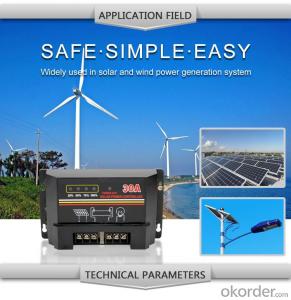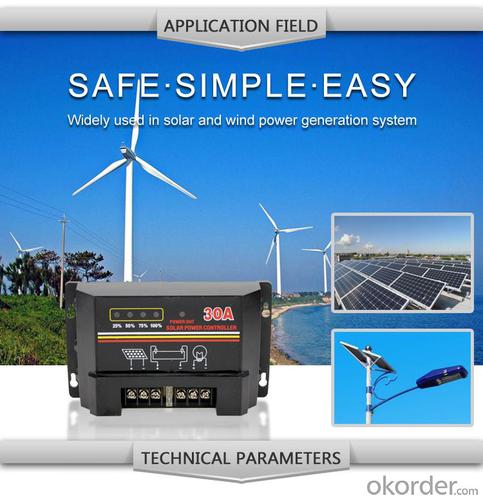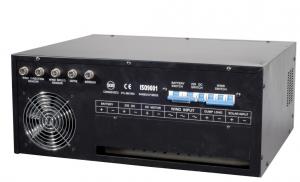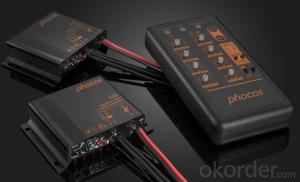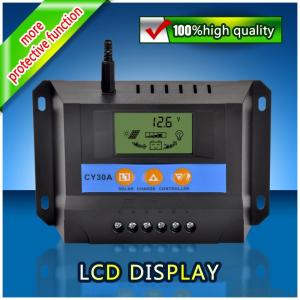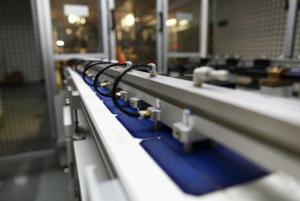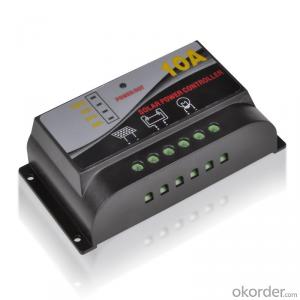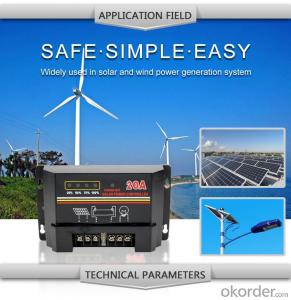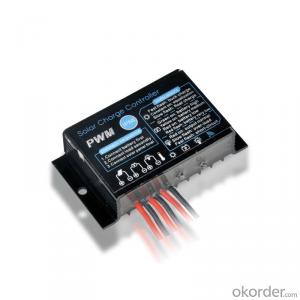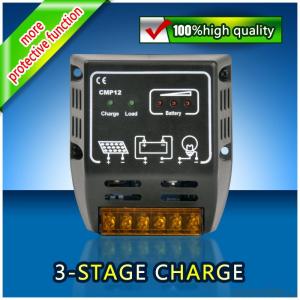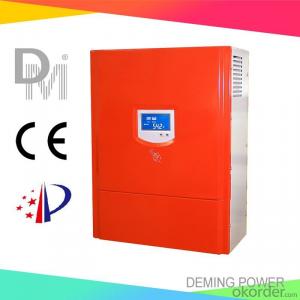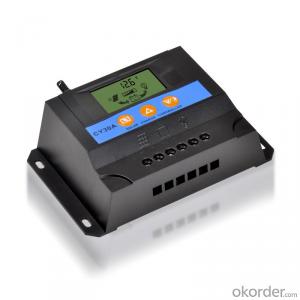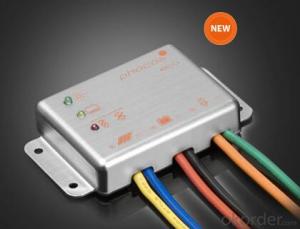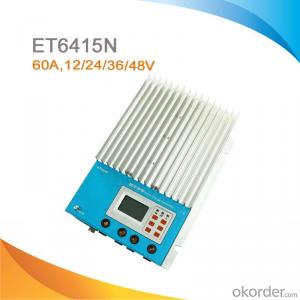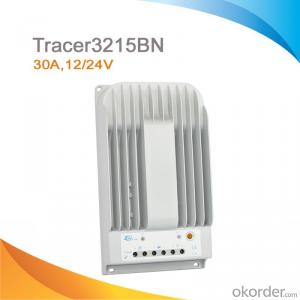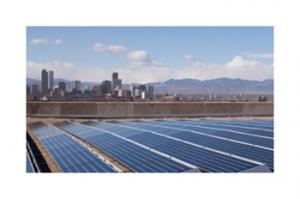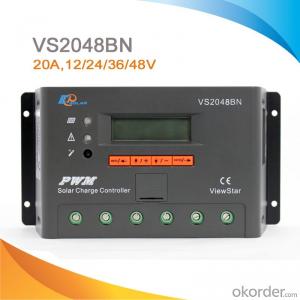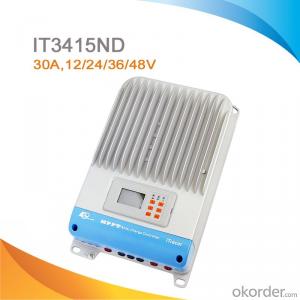100 Watt Solar Panel Controllers - Solar LCD Controller DM130A with Best Price Hot Selling Model
- Loading Port:
- China main port
- Payment Terms:
- TT or LC
- Min Order Qty:
- 1 unit
- Supply Capability:
- 10000 unit/month
OKorder Service Pledge
OKorder Financial Service
You Might Also Like
Product IntroductionSolar controller is control device which can control solar panel and transform solar energy into electricity then store to the battery bank. Solar controller is the most important part in offgrid system, whose performance has much effect on life expectancy and operation of the whole system, especially the battery expectancy.
Application Areas
Standalone Photovoltaic power station
Standalone Domestic household photovoltaic power system
Mobil communication base stations, expressway and other non-residential regions.
Coastal islands, remote mountainous, border posts for regions shortage of or without electricity.
Government demonstration projects, landscape lighting project etc.
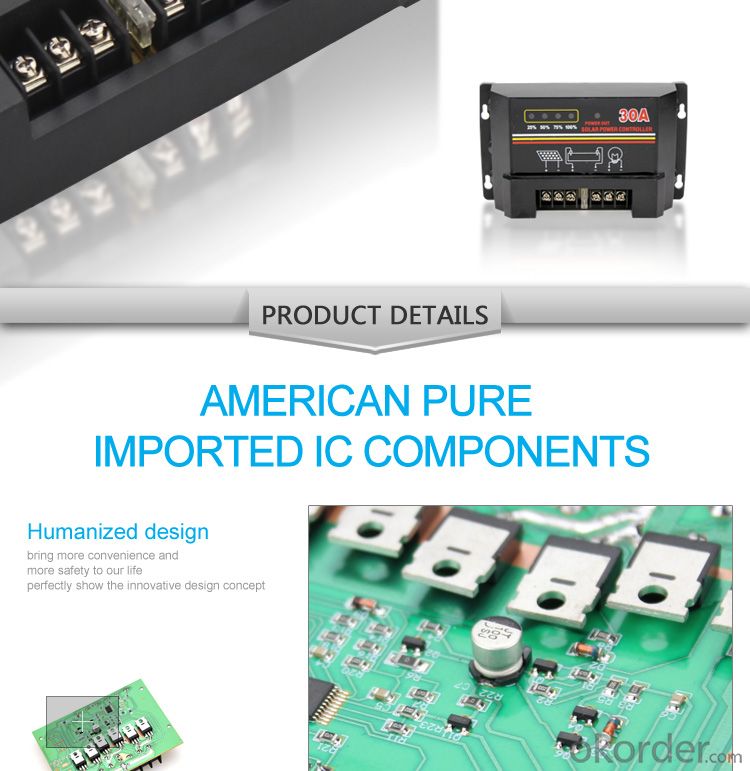
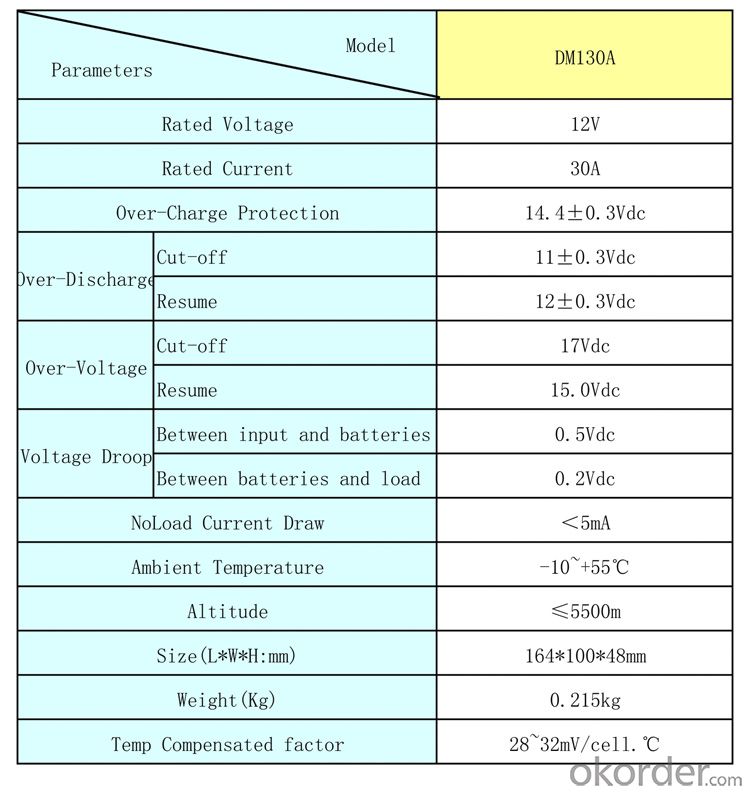
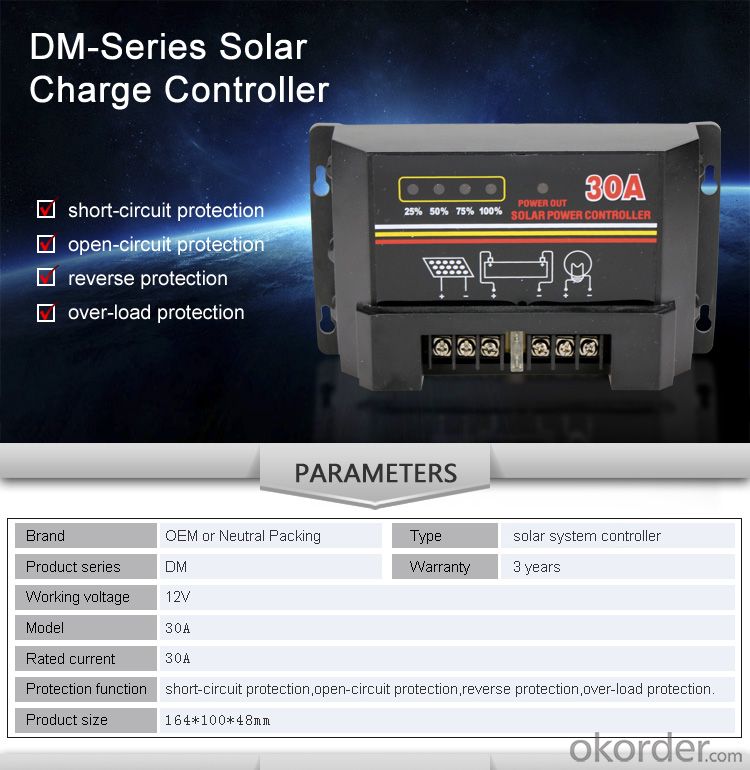
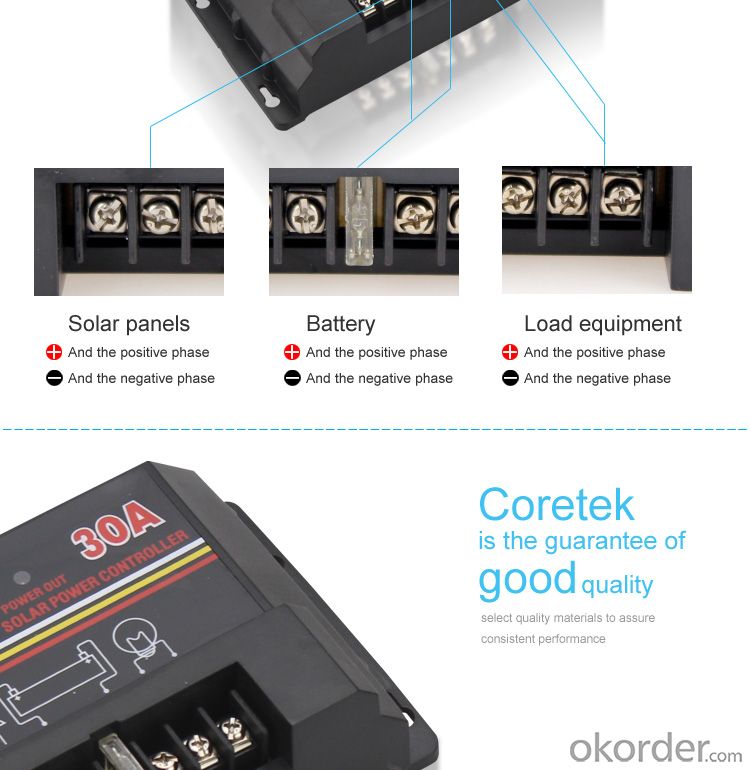
- Q: Can a solar controller be used with solar-powered pool heaters?
- Yes, a solar controller can be used with solar-powered pool heaters. A solar controller helps regulate and optimize the performance of the solar panels by managing the flow of energy from the panels to the pool heater. It monitors and adjusts the temperature, ensuring efficient heating and preventing overheating. By using a solar controller, pool owners can maximize the benefits and effectiveness of their solar-powered pool heaters.
- Q: What is the role of a solar controller in preventing over-discharge of batteries?
- The role of a solar controller in preventing over-discharge of batteries is to monitor the voltage level of the batteries and regulate the charging and discharging process. It ensures that the batteries are not drained beyond their safe operating range by disconnecting the load when the voltage drops to a certain threshold. This prevents over-discharge, which can lead to permanent damage or reduced lifespan of the batteries.
- Q: What is the purpose of the battery voltage regulation feature on a solar controller?
- The purpose of the battery voltage regulation feature on a solar controller is to ensure that the batteries connected to the solar system are charged and maintained at an optimal voltage level. Solar panels generate electricity from the sun, which is typically converted into DC (direct current) electricity. This DC electricity is then stored in batteries for later use, especially during periods of low sunlight or at night when the solar panels are not generating power. However, it is important to regulate the voltage of the batteries to prevent overcharging and undercharging, which can significantly shorten their lifespan and reduce their overall efficiency. The battery voltage regulation feature monitors the voltage level of the batteries and adjusts the charging process accordingly. When the batteries reach their maximum charge level, the solar controller will stop or reduce the charging current to prevent overcharging. Similarly, if the battery voltage drops below a certain threshold, the solar controller will increase the charging current to recharge the batteries and prevent undercharging. By maintaining the batteries at an optimal voltage level, the battery voltage regulation feature helps prolong their lifespan, improve their performance, and ensure a reliable power supply from the solar system. It also helps to protect the overall integrity of the solar system by preventing potential damage to the batteries or other connected components due to improper charging.
- Q: Can a solar controller be used with a solar-powered water heater for swimming pools?
- Yes, a solar controller can be used with a solar-powered water heater for swimming pools. The solar controller helps regulate and control the flow of water through the solar panels, ensuring optimal heating efficiency for the pool water.
- Q: Can a solar controller be used with solar panels that have different angles of inclination?
- Yes, a solar controller can be used with solar panels that have different angles of inclination. The solar controller's main function is to regulate and optimize the charging and discharging of the battery connected to the solar panels. It does this by monitoring the voltage and current generated by the panels and adjusting the charging parameters accordingly. The angle of inclination of the solar panels affects the amount of sunlight they receive and, therefore, the amount of electricity they generate. Panels installed at different angles will produce varying amounts of power throughout the day. However, the solar controller is designed to work with these variations and can adjust the charging parameters accordingly. While it is generally recommended to install solar panels at the optimal angle for maximum energy production, it is not always possible due to various factors such as roof orientation, available space, and aesthetic considerations. In such cases, solar panels may be installed at different angles, and the solar controller will still be able to efficiently regulate the charging process. It is worth noting that significant deviations in the angle of inclination among panels in a system could lead to some loss in overall energy production. This is because panels at different angles may not receive sunlight uniformly, resulting in a decreased overall efficiency. However, modern solar controllers are capable of handling these variations and ensuring the system operates optimally, even with panels at different angles of inclination.
- Q: Can a solar controller be used in a residential solar power system?
- Certainly! A residential solar power system can indeed utilize a solar controller. This vital component, also referred to as a charge controller or solar regulator, is indispensable within such a system. Its primary function involves the regulation of voltage and current flow from the solar panels to the battery, while simultaneously averting the perils of overcharging. In the context of a residential solar power system, the solar controller's fundamental role is to ensure efficient battery charging and safeguard its longevity by preventing damage caused by excessive charging. Additionally, it serves to shield the battery against excessive discharge during periods of inadequate sunlight or heightened energy consumption. Consequently, the solar controller assumes a pivotal position in optimizing the performance and durability of a residential solar power system.
- Q: Can a solar controller be used with a solar-powered gate opener?
- Yes, a solar controller can be used with a solar-powered gate opener. A solar controller helps regulate the charging and discharging of the battery connected to the solar panel. It ensures that the battery is properly charged and protected from overcharging or discharging, which is essential for the efficient functioning of a solar-powered gate opener.
- Q: How does a solar controller protect against reverse current flow?
- A solar controller protects against reverse current flow by incorporating a diode in its circuitry. This diode allows current flow from the solar panels to the battery but prevents any backflow from the battery to the panels.
- Q: Can a solar controller be used in a solar-powered cargo ship?
- Yes, a solar controller can be used in a solar-powered cargo ship. A solar controller is responsible for regulating and optimizing the energy flow from solar panels to the ship's battery bank. It ensures that the solar panels are charging the batteries efficiently and protects them from overcharging. Therefore, a solar controller plays a crucial role in maximizing the solar power generation and utilization in a solar-powered cargo ship.
- Q: How does a solar controller prevent damage from over-discharging of batteries?
- A solar controller prevents damage from over-discharging of batteries by constantly monitoring the battery voltage and disconnecting the load when it reaches a certain low voltage threshold. This prevents the batteries from being drained beyond their recommended depth of discharge, which can lead to irreversible damage and reduced lifespan.
Send your message to us
100 Watt Solar Panel Controllers - Solar LCD Controller DM130A with Best Price Hot Selling Model
- Loading Port:
- China main port
- Payment Terms:
- TT or LC
- Min Order Qty:
- 1 unit
- Supply Capability:
- 10000 unit/month
OKorder Service Pledge
OKorder Financial Service
Similar products
Hot products
Hot Searches
Related keywords
